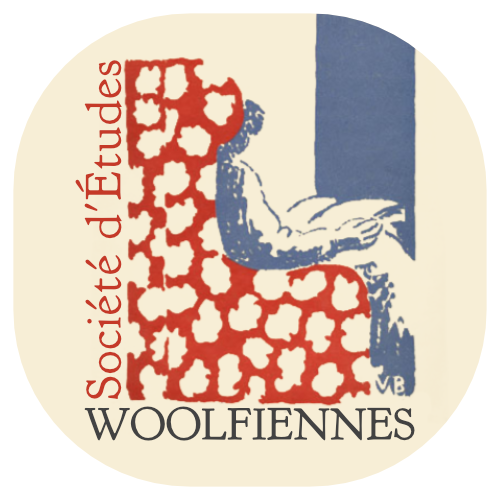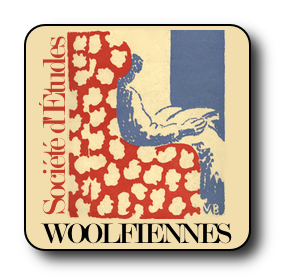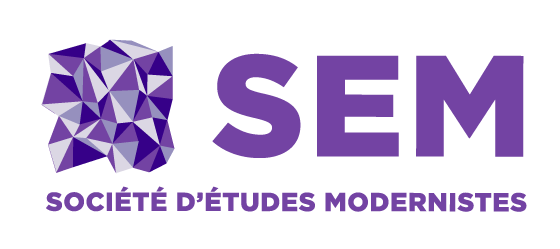REVOLUTIONS
Société d’Études Modernistes (SEM) & Société d’Études Woolfiennes (SEW)
Joint Workshop
SAES Conference, Université Paris Ouest Nanterre, 7-9 June 2018
Modernism started performatively as a “revolution of the word.”[i] This proclamation of revolution, variously voiced by Dada artists, in Blast, or by Eugène Jolas, defines the anti-institutional, violent temporality of the modernist manifesto; yet, developing through a sustained focus on modernism’s formal innovations and epistemic rupture, the metanarrative of revolution has also become central to the institutionalisation of modernist studies. When Virginia Woolf registered that “on or about 1910”[ii] the Georgian cook left the dark underworld of the Victorian kitchen, she spelled out a social upheaval that modernist studies have diversely but consistently identified with “the modernist period.”
If it ultimately gets lost in fixed patterns of periodisation, modernism’s revolutionary impetus nonetheless runs the risk of turning into a canonical “comfort zone”[iii] of sorts. While modernist critics, in the wake of Marjorie Perloff’s 21st-Century Modernism. The “New” Poetics (2002), have extended this narrative of revolution to contemporary poetics, more recent studies have attempted to rethink a prehistory of modernist revolution, and thereby to revise the genealogy of its inscription in Western modernity. In Planetary Modernisms (2015), Susan Stanford Friedman redefined modernism through Fernand Braudel’s concept of longue durée as an iterative phenomenon considered across time and on a global scale. Questioning this long-standing focus on revolution, several critics, such as Steve Ellis’s Virginia Woolf and the Victorians (2007), have alternatively chosen to retrace historical lines of transition and transmission between the Victorian and modernist eras.
This SAES workshop aims to continue this ongoing rethinking of modernism’s forms, conditions, and “posture[s]”[iv] of revolution. By avoiding the essentialisation of rupture and envisioning cultural change, in the wake of Fredric Jameson, “beyond the opposition between synchrony and diachrony,”[v] we propose to pluralise our approaches to revolutionary modernisms, and thus to understand such performances of modernity by building on the radically multiple semantics of the notion per se, such as theorised by Reinhart Koselleck. Koselleck’s insight into revolution as a globally extendable marker of modernity is particularly significant for this purpose: “The word ‘revolution’ possesses such revolutionary power that it is constantly extending itself to include every last element on our globe.”[vi]
The Société d’Études Modernistes and the Société d’Études Woolfiennes encourage participants of this joint workshop to:
Attend to the polysemy and plurality of modernist revolutions, ranging from politics to science, technology, economics, gender, etc., with a special focus on Virginia Woolf’s multiple perspectives on revolution (see, for example, Clara Jones’s work on Woolf as “ambivalent activist”[vii]).
Discuss the periodisation of modernist revolutions, with a focus on alternative dates (see Jean-Michel Rabaté’s choice to focus on 1912+1 in 1913: The Cradle of Modernism), extended timelines, and revisionist genealogies.
Extend the politics of revolution transnationally (see for instance Steven S. Lee’s recent work on the “ethnic avant-garde”[viii] and David Ayers’s research on the Russian Revolution).
Track modernist revolutions across media (music, painting, photography, cinema, radio, etc.).
Abstracts of maximum 300 words, written in English or in French, and short bio-bibliographies should be sent to Marie Laniel (marie.laniel@gmail.com) and Caroline Pollentier (caroline.pollentier@hotmail.fr) by January 31st, 2018.
[i] Jolas, Eugène. “The Revolution of the Word Proclamation.” transition 16-17 (June 1929), p. 1.
[ii] Woolf, Virginia. “Character in Fiction.” The Essays of Virginia Woolf. Vol. 3. Ed. Andrew McNeillie. London: Hogarth Press, 1988, p. 421.
[iii] Friedman, Susan Stanford. “Planetarity: Musing Modernist Studies.” modernism/modernity 17.3 (2010), p. 494.
[iv] James, David, and Urmila Seshagiri. “Metamodernism: Narratives of Continuity and Revolution.” PMLA 129.1 (2014), p. 90.
[v] Jameson, Fredric. The Political Unconscious. Narrative as a Socially Symbolic Act. London: Routledge, 2006, p. 83.
[vi] Koselleck, Reinhart. “Historical Criteria of the Modern Concept of Revolution.” Futures Past. On the Semantics of Historical Time. New York: Columbia UP, 2004, p. 44.
[vii] Jones, Clara. Virginia Woolf: Ambivalent Activist. Edinburgh: EUP, 2016.
[viii] Lee, Steven S. The Ethnic Avant-Garde. Minority Cultures and World Revolution. New York: Columbia UP, 2015.



